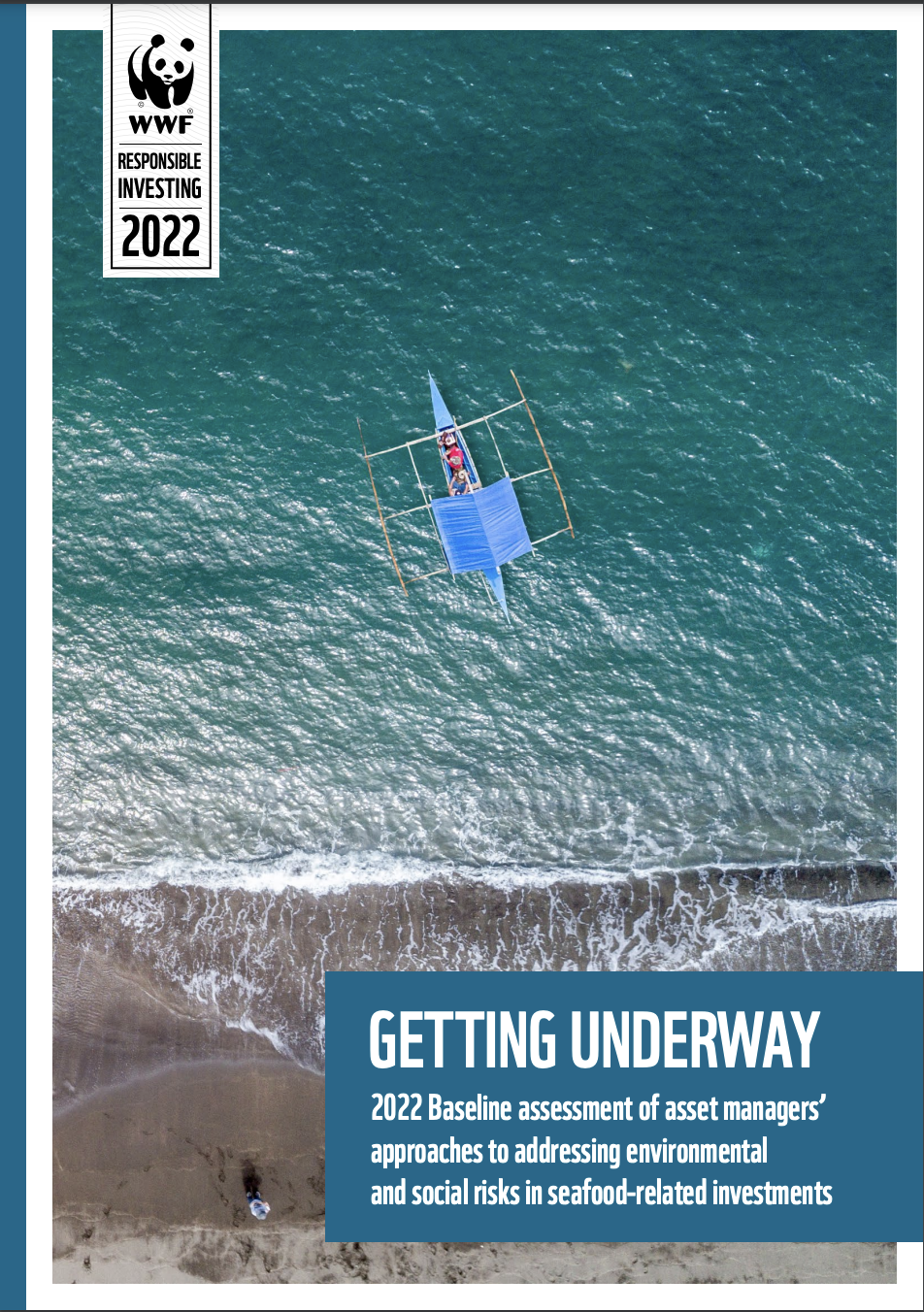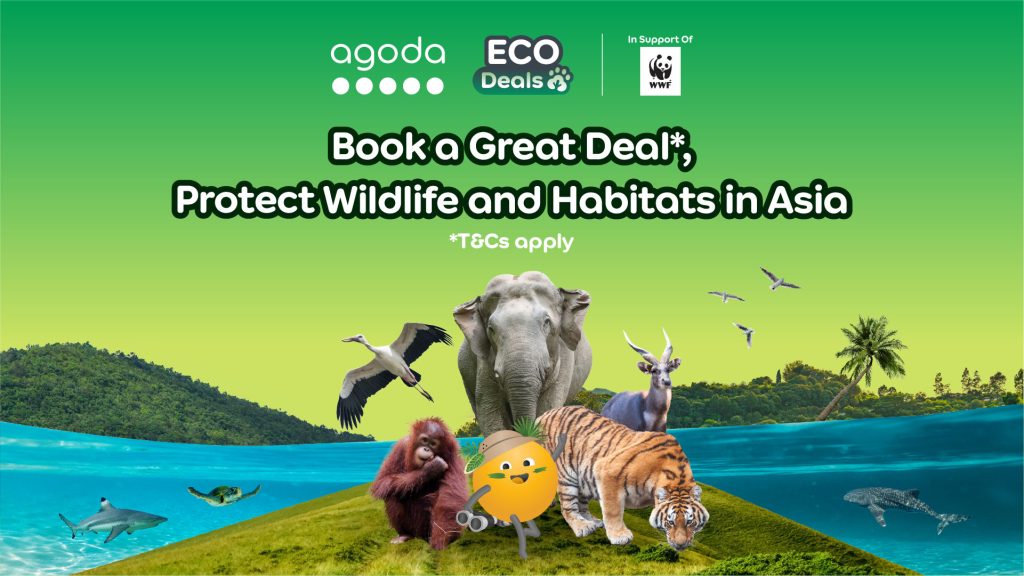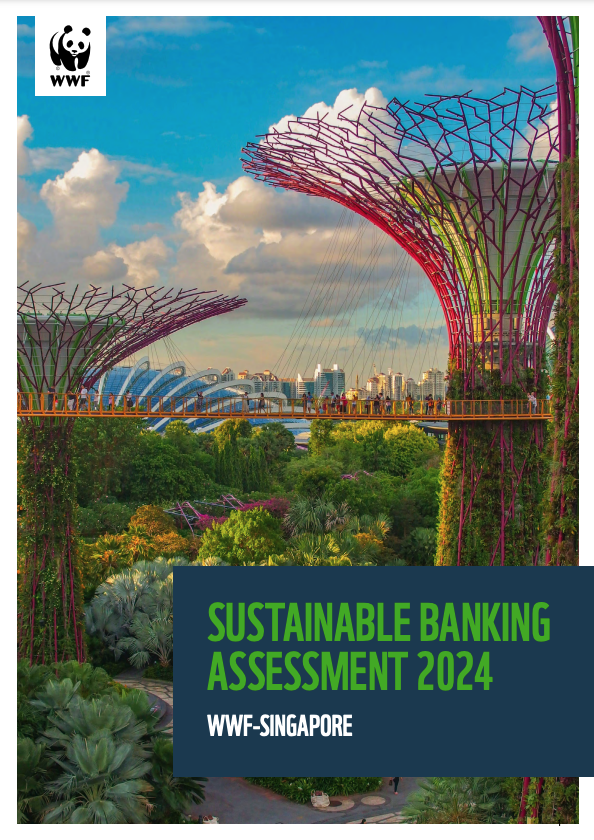New WWF research shows some banks and investors recognize the potential for ESG risks in seafood but most lack robust or actionable policies
SINGAPORE, 27 February 2023 — A coalition of five conservation and biodiversity-focused organizations has launched an initiative that will leverage the power of investors to engage seafood companies on critical nature and biodiversity related impacts and risks. The group announced the effort during a discussion held at The Economist World Ocean Summit today.
With the goal to eliminate overfishing, illegality and habitat conversion from seafood value chains, this new initiative will convene a group of like-minded investors to conduct targeted engagement with key seafood companies. The World Wide Fund for Nature (WWF), the FAIRR Coller Initiative, UNEP FI’s Sustainable Blue Economy Finance Initiative, the World Benchmarking Alliance (WBA), and Planet Tracker will support the investor group to develop targeted asks and leverage their collective power to strengthen companies’ commitments to and implementation of best practice in seafood sustainability.
In its first phase, the investor action group will focus on engaging seafood companies on best practice sustainability efforts, such as: developing full-chain traceability systems, reducing bycatch and discards, reducing food loss and waste, and working towards meeting globally recognised standards. Joining the initiative will help investors to meet science-based ocean-related principles and guidance such as those housed under the UNEP FI Sustainable Blue Economy Finance Initiative, as well as allowing them to get ahead with emerging efforts to tackle nature and biodiversity risks in their portfolios, such as the Taskforce on Nature-related Financial Disclosures.
“Our ocean supports an overwhelming amount of biodiversity and hundreds of millions of people depend on it being healthy, now and into the future. However, unsustainable seafood production is having a negative impact on ocean health, whilst also putting its own future at risk.” said Lucy Holmes, Senior Director of Blue Finance for WWF-US. “Not addressing environmental and social risks and impacts in seafood production can expose investors to financially material risks. And given the seafood sector’s immense dependence on nature and a healthy ocean, taking action on seafood is a great way for investors to begin addressing broader nature and biodiversity-related risks and impacts.”
The launch of this joint effort follows today’s publication of a new report from WWF that shows despite most asset managers publicly recognizing biodiversity and natural capital impacts as risks, seafood-related risks and impacts are not, in the vast majority of cases, being addressed. Of the 42 asset managers whose public disclosures were assessed, only one has already developed and publicly disclosed seafood-specific environmental and social (E&S) expectations for its investee companies. The report – Getting Underway: 2022 Baseline assessment of asset managers’ approaches to addressing E&S risks in seafood-related investments — is a first of its kind assessment and underscores the need for more investor engagement on these issues, particularly through collaborations such as the one launched today.
“Investor collective engagement is a useful tool both for driving change at the company level, and for helping investors to strengthen their own internal risk management policies and processes,” said Jo Raven, Director of Thematic Research & Corporate Innovation for FAIRR. “Over the past six years FAIRR has worked with over 350 investors managing USD 70 trillion in AUM to collectively address issues ranging from biodiversity loss to antimicrobial resistance. We’ve seen how the collective engagement format supports pre-competitive peer-to-peer learning. We think the potential to address seafood risks in this format is huge.”
“This new initiative will help financial institutions understand how business-as-usual seafood production, distribution, and consumption negatively impacts the environment, causing biodiversity and nature loss, climate change, and human rights abuses,” said Dennis Fritsch, Associate Programme Lead Nature, UNEP Finance Initiative. “By equipping organizations with practical strategies to manage their own exposure to seafood-sector environmental and social risks, and identifying and developing sustainable investment opportunities, these efforts will support the urgently needed transition to a sustainable blue economy.”
Banks are slightly more advanced in their thinking around seafood but have work to do as well. A recent assessment of banks’ seafood-related policies and procedures found that most major seafood lenders are aware of the need to manage E&S issues in the sector, but current policies — where they exist — are insufficient to prevent and manage their exposure to those risks. The analysis, summarized in the report — “Above Board: 2022 Baseline Assessment of Banks’ Seafood Sector Policies” – looked at 41 international banks’ public disclosures on E&S risk management, and found that only 20% disclosed seafood sector policies.
To provide additional support for both banks and investors, WWF has developed a self-paced e-learning course – Seafood Sustainability 101 for Finance Professionals — which is, as of today, open for enrollment[1]. This course is one of a number of key resources developed by WWF and collaborating partners to support financial institutions to understand seafood-related risks and impacts and develop policies, processes and other actions to manage and mitigate their own exposure.
For more information on the collective engagement on seafood sustainability please contact susan.mccarthy@wwfus.org. For more information on the bank and investor analysis or the e-learning course, or for interviews with research principals, please contact team@wwf.sg, contact@asfi.asia.
[1]WWF has published the course under the ASFI Academy (Asia Sustainable Finance Academy) – an e-learning academy. This was launched in Sept 2021 by WWF Singapore in collaboration with Singapore’s leading finance sector industry associations and to date more than 6,000 financial professionals in 31 countries have been trained via the academy.















